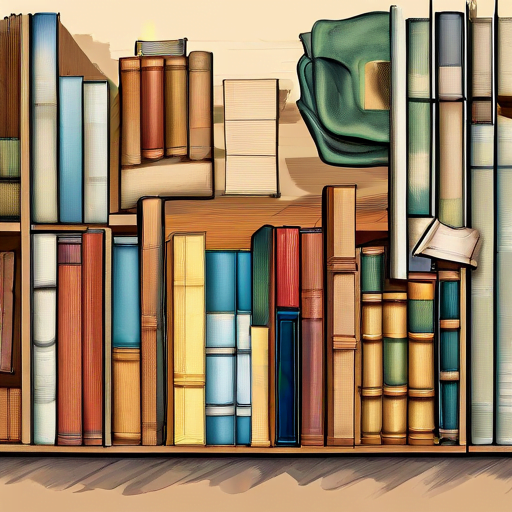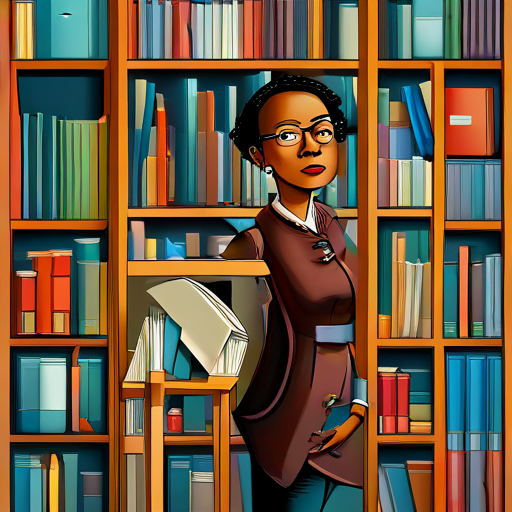Do you love books? Do you enjoy immersing yourself in different worlds and gaining new perspectives through literature? If so, then building a personal library is a must. Having a collection of books that you can always turn to for inspiration, knowledge, and entertainment is invaluable.
But with so many great books out there, it can be overwhelming to decide which ones to add to your collection. That’s why we’ve compiled a list of the top must-have books for your personal library.
These books have stood the test of time and have been loved by generations of readers. They cover a wide range of topics, from classic novels to non-fiction works that explore the human experience. Each one is a masterpiece in its own right and will provide you with hours of enjoyment and enlightenment.
So, without further ado, let’s dive into the top must-have books for your personal library.
Table of Contents
To Kill a Mockingbird by Harper Lee

You can’t miss out on reading To Kill a Mockingbird by Harper Lee – it’s a classic for a reason.
This masterpiece explores themes of race and justice through the eyes of a young girl in the Deep South.
Harper Lee’s poignant writing style and unforgettable characters will leave you captivated and moved.
From Atticus Finch’s unwavering moral compass to Scout’s coming-of-age journey, this novel is a must-have for any personal library.
So, grab a copy and immerse yourself in the timeless story that has touched the hearts of generations.
1984 by George Orwell

The inclusion of 4 by George Orwell in any collection is a wise decision for its thought-provoking content.
Animal Farm, a satirical novel, serves as a commentary on the Russian Revolution and Stalinism.
1984, a dystopian novel, explores the dangers of totalitarianism and the importance of individual freedom.
Homage to Catalonia, a memoir, details Orwell’s experience fighting in the Spanish Civil War and his disillusionment with the Soviet Union’s role in the conflict.
And finally, Down and Out in Paris and London, a semi-autobiographical work, depicts Orwell’s time living in poverty in both cities.
Each of these works offers a unique perspective on political and social issues, making them essential additions to any personal library.
The Great Gatsby by F. Scott Fitzgerald

If you’re looking for a captivating tale of love, greed, and excess set against the backdrop of the roaring 1920s, then The Great Gatsby by F. Scott Fitzgerald is a must-read.
This classic novel follows the story of Jay Gatsby, a mysterious and wealthy man who throws lavish parties in the hopes of winning back his lost love, Daisy Buchanan.
Through the eyes of narrator Nick Carraway, we witness the extravagance and corruption of the wealthy elite, as well as the tragic consequences of their actions.
Fitzgerald’s prose is both lyrical and poignant, capturing the spirit of the Jazz Age while also exploring timeless themes of love, identity, and the American Dream.
The Great Gatsby is a masterpiece of modern literature that continues to resonate with readers today.
Sapiens: A Brief History of Humankind by Yuval Noah Harari

Sapiens by Yuval Noah Harari is a fascinating exploration of the history of humankind. Harari delves into the evolution of our species and the societal structures that have shaped our world today. With a unique perspective on the past, he provides insight into how we came to be the dominant species on the planet and how our societies have developed over time.
He challenges commonly held beliefs and offers new ways of understanding human behavior and the world around us. This book is a must-have for anyone interested in anthropology, history, or simply understanding the intricacies of human nature.
Harari’s writing style is engaging and accessible, making it an enjoyable read for both experts and novices alike.
The Immortal Life of Henrietta Lacks by Rebecca Skloot

Rebecca Skloot’s The Immortal Life of Henrietta Lacks provides a thought-provoking examination of the ethical implications of scientific research on human subjects and the importance of acknowledging the contributions of marginalized communities to medical advancements.
The book tells the story of Henrietta Lacks, a Black woman whose cancer cells were taken without her knowledge or consent and used for scientific research, leading to numerous medical breakthroughs.
Skloot delves into the complex issues of informed consent, racial inequality in healthcare, and the exploitation of vulnerable populations.
It’s a powerful and necessary read that sheds light on the often-overlooked history of medical research and the impact it has had on communities like Henrietta Lacks’.
Conclusion
To Kill a Mockingbird by Harper Lee teaches valuable lessons on racism, social inequality, and justice.
1984 by George Orwell warns us about the dangers of totalitarianism and the importance of individual freedom.
The Great Gatsby by F. Scott Fitzgerald offers a glimpse into the American dream and the corruption that comes with it.
Sapiens: A Brief History of Humankind by Yuval Noah Harari challenges our understanding of human evolution and development.
Lastly, The Immortal Life of Henrietta Lacks by Rebecca Skloot sheds light on the ethical issues surrounding medical research and the importance of informed consent.
By having these books in your personal library, you’re investing in your intellectual growth and expanding your worldview.
So, sit back, relax, and enjoy the journey these books will take you on. Happy reading!
